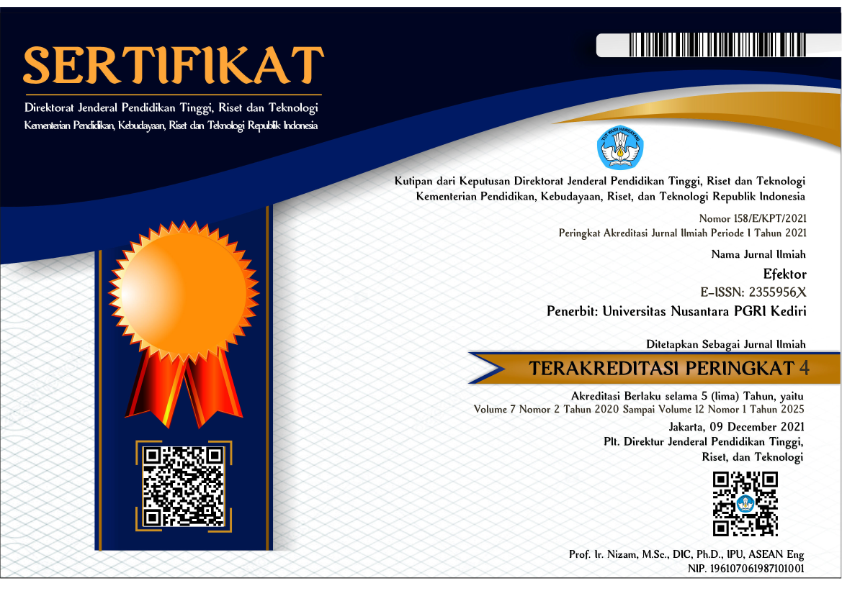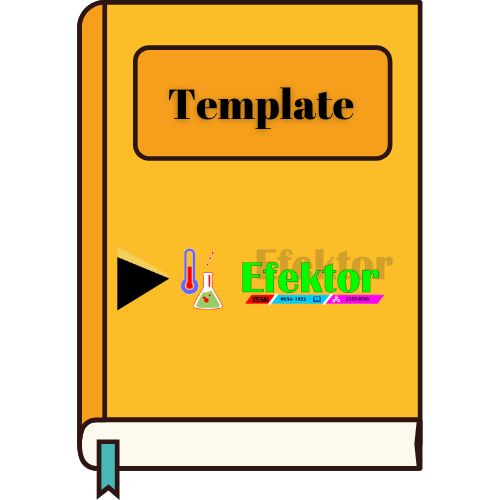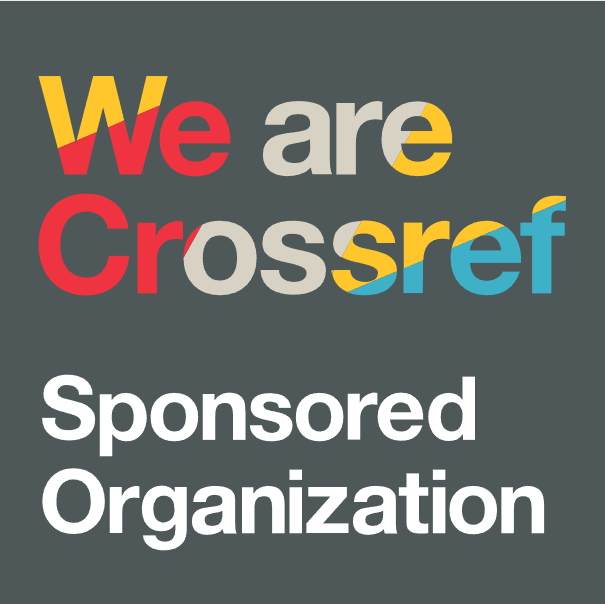Pengembangan Kurikulum Pendidikan Teknik Informatika dan Komputer di Era Revolusi Industri 4.0
DOI:
https://doi.org/10.29407/e.v6i2.12910Keywords:
Curriculum change, Semester Learning Plan (SLP), Industrial Revolution Literacy 4.0Abstract
This paper analyzes the steps of curriculum change that must be carried out at The Information and Computer Engineering Education(ICCE) study program of Bung Hatta University, to realize standards of graduate competency as contained in the formulation of Learning Outcomes (LO). Especially in the face of the Industrial Revolution(IR) 4.0 era with three additional literacy, demanding changes in content by maintaining a balance between the development of spiritual and social attitudes, creativity, independence, cooperation with intellectual and psychomotor abilities. Some recommendations that are immediately fulfilled are 1) Re-improving the profile of graduates in accordance with the demands of the labor market and appropriate scientific progress IR 4.0, 2). Constructing LO and LO-Courses, 3) Rearranging materials, strategies, evaluation techniques that are in accordance with the HE curriculum guidelines, 4) Accommodating differences in individual abilities and disabilities 5). Conducting workshops for lecturers in making Semester Learning Plan(SLP) in accordance with the demands of IR. 4.0.
References
Arafeh, S. (2016). Curriculum mapping in higher education: a case study and proposed content scope and sequence mapping tool. Journal of Further and Higher Education, 40(5), 585–611. https://doi.org/10.1080/0309877X.2014.1000278
Bhattacharyya, E. (2018). Stakeholders perspective on communicative competence in industry 4.0: Walk the talk of informative technologists. Les Ulis: EDP Sciences. doi:http://dx.doi.org/10.1051/shsconf/20185303001
Bolt, D. (2017). Enabling the classroom and the curriculum: higher education, literary studies and disability. Journal of Further and Higher Education, 41(4), 556–565. https://doi.org/10.1080/0309877X.2015.1135888
Brown, R. (2018). Higher education and inequality. Perspectives: Policy and Practice in Higher Education, 22(2), 37–43. https://doi.org/10.1080/13603108.2017.1375442
Buasuwan, P. (2018). Rethinking thai higher education for thailand 4.0. Asian Education and Development Studies, 7(2), 157-173. doi:http://dx.doi.org/10.1108/AEDS-07-2017-0072
Divisi Tracer study UBH, 2017, Laporan tarcer study Program study Pendidikan Matematika Universitas Bung Hatta
Clifford, V., & Montgomery, C. (2017). Designing an internationationalised curriculum for higher education: embracing the local and the global citizen. Higher Education Research and Development, 36(6), 1138–1151. https://doi.org/10.1080/07294360.2017.1296413
Gyamera, G. O., & Burke, P. J. (2018). Neoliberalism and curriculum in higher education: a post-colonial analyses. Teaching in Higher Education, 23(4), 450–467. https://doi.org/10.1080/13562517.2017.1414782
Hadi, M. Y. A., Hassan, R., Razzaq, A. R. A., & Mustafa, M. Z. (2015). Application of Thinking Skills in Career: A Survey on Technical and Vocational Education Training (TVET) Qualification Semi-professional Job Duties. Procedia - Social and Behavioral Sciences, 211(September), 1163–1170. https://doi.org/10.1016/j.sbspro.2015.11.155
Ismail, S., & Mohammed, D. S. (2015). Employability Skills in TVET Curriculum in Nigeria Federal Universities of Technology. Procedia - Social and Behavioral Sciences, 204(November 2014), 73–80. https://doi.org/10.1016/j.sbspro.2015.08.111
Intan Ahmad, 2019, Pendidikan Tinggi Menjawab Tantangan Era Industri 4.0: Revisi Kurikulum, Materi workshop Kurikulum universitas Bung Hatta 1 Maret 2019
Jeffrey Choppina, Amy Roth McDuffieb, Corey Drakec, Jon Davisd, 2018, Curriculum ergonomics: Conceptualizing the interactions between curriculum design and use, International Journal of Educational Research, 92: 75-85
Marzano, R. J., & Kendall, J. S. (2007). The New Taxonomy of Educational Objectives. California: A Sage Publications Company
Olotewo, J. (2017). Developing and sustaining vocational educational training in africa: the core element. International Journal of Arts & Sciences, 10(1), 257-273. Retrieved from https://search.proquest.com/docview/2032378861?accountid=62719
Peach, S. (2010). A curriculum philosophy for higher education: Socially critical vocationalism. Teaching in Higher Education, 15(4), 449–460. https://doi.org/10.1080/13562517.2010.493345
Roberts, P. (2015). Higher education curriculum orientations and the implications for institutional curriculum change. Teaching in Higher Education, 20(5), 542–555. https://doi.org/10.1080/13562517.2015.1036731
Wolf, M., Kleindienst, M., Ramsauer, C., Zierler, C., & Winter, E. (2018). Current and future industrial challenges: demographic change and measures for elderly workers in industry 4.0. Annals of the Faculty of Engineering
Hunedoara, 16(1), 67-76. Retrieved from https://search.proquest.com/docview/2051204666?accountid=62719
Yang, C., & Yu, M. (2015). Survey and research on continuing education curriculum construction for primary and secondary school teachers. Les Ulis: EDP Sciences. doi:http://dx.doi.org/10.1051/shsconf/20151401007
Downloads
Published
Issue
Section
License
Authors who publish with this journal agree to the following terms:
- Copyright on any article is retained by the author(s).
- The author grants the journal, the right of first publication with the work simultaneously licensed under a Creative Commons Attribution License that allows others to share the work with an acknowledgment of the work’s authorship and initial publication in this journal.
- Authors are able to enter into separate, additional contractual arrangements for the non-exclusive distribution of the journal’s published version of the work (e.g., post it to an institutional repository or publish it in a book), with an acknowledgment of its initial publication in this journal.
- Authors are permitted and encouraged to post their work online (e.g., in institutional repositories or on their website) prior to and during the submission process, as it can lead to productive exchanges, as well as earlier and greater citation of published work.
- The article and any associated published material is distributed under the Creative Commons Attribution-ShareAlike 4.0 International License













